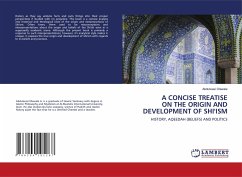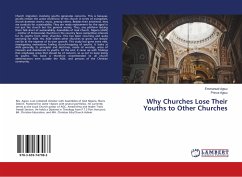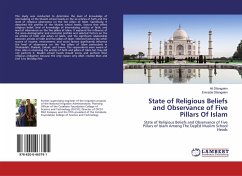
Beliefs in Hindu Gods of Modern Thai Youths in Bangkok
The Movement of belief in Hindu gods to Thai society and behavior of youth
Versandkostenfrei!
Versandfertig in 6-10 Tagen
32,99 €
inkl. MwSt.

PAYBACK Punkte
16 °P sammeln!
The approach of the New Public Management requires that governments should consult and engage citizens in policy making in order to enhance the quality, credibility and legitimacy of policy decisions. While this approach is being implemented in both developed and developing countries, some developing poor countries are facing limitations in harmonizing the traditional centralized systems and the new approaches of citizen's participation. This book which is based on a research study conducted in Uganda gives an insight on how the participatory planning model has been implemented in a decentrali...
The approach of the New Public Management requires that governments should consult and engage citizens in policy making in order to enhance the quality, credibility and legitimacy of policy decisions. While this approach is being implemented in both developed and developing countries, some developing poor countries are facing limitations in harmonizing the traditional centralized systems and the new approaches of citizen's participation. This book which is based on a research study conducted in Uganda gives an insight on how the participatory planning model has been implemented in a decentralized set up and how it has attempted to empower the citizens in a resource poor country despite the pertinent challenges. It contributes invaluable information on how participatory approaches can be enhanced for better citizen's empowerment. This book will be especially useful to economists, policy makers and analysts, researchers, programme and project implementers, social workers and administrators especially in the public and voluntary sectors.












